|
Books Should Be Free Loyal Books Free Public Domain Audiobooks & eBook Downloads |
|
|
Books Should Be Free Loyal Books Free Public Domain Audiobooks & eBook Downloads |
|
History Books |
|---|
|
Book type:
Sort by:
View by:
|
By: Robert Falcon Scott (1868-1912) | |
|---|---|
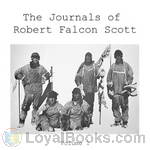 The Journals of Robert Falcon Scott
The Journals of Robert Falcon Scott
Capt. Robert F. Scott's bid to be the leader of the first expedition to reach the South Pole is one of the most famous journeys of all time. What started as a scientific expedition turned out to be an unwilling race against a team lead by R. Admunsen to reach the Pole. The Norwegian flag already stood at the end of the trail when Scott's party reached their target. All the five men of the Scott expedition who took part in the last march to the Pole perished on their way back to safety. Robert F. Scott kept a journal throughout the journey, all the way to the tragic end, documenting all aspects of the expedition... | |
By: Horatio Nelson | |
|---|---|
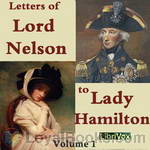 The Letters of Lord Nelson to Lady Hamilton
The Letters of Lord Nelson to Lady Hamilton
Horatio Nelson, 1st Viscount Nelson, 1st Duke of Bronté, KB (29 September 1758 – 21 October 1805) was an English flag officer famous for his service in the Royal Navy, particularly during the Napoleonic Wars. He won several victories, including the Battle of Trafalgar in 1805, during which he was killed. These are the letters that he wrote to Lady Hamilton, with whom he was having a notorious affair until his death in 1805. | |
By: Livy | |
|---|---|
 The History of Rome, Books 01 to 08
The History of Rome, Books 01 to 08
| |
 The History of Rome, Books 09 to 26
The History of Rome, Books 09 to 26
| |
 Roman History, Books I-III
Roman History, Books I-III
| |
 The History of Rome, Books 27 to 36
The History of Rome, Books 27 to 36
| |
By: Henry Adams (1838-1918) | |
|---|---|
 The Education of Henry Adams
The Education of Henry Adams
| |
 Mont-Saint-Michel and Chartres
Mont-Saint-Michel and Chartres
| |
By: Georg Ebers (1837-1898) | |
|---|---|
 Arachne
Arachne
Ledscha, living in ancient Egypt, has lost her betrothed and all hope of love. But the gods see otherwise. She now loves a Greek sculptor, who only wanted her for a model, but even that will not happen. She has been replaced by another woman for the statue of Arachne. Who do the gods see her with? Is it the Greek, or someone else? This work is the last written and published in German by Georg Ebers before he died in 1898. He wrote many novels set it ancient Egypt, which sparked the general interest in and popularity of Egyptology that still thrives today. This book was translated into English also in 1898. | |
 An Egyptian Princess
An Egyptian Princess
| |
 Uarda : a Romance of Ancient Egypt
Uarda : a Romance of Ancient Egypt
| |
 The Sisters
The Sisters
| |
 The Emperor
The Emperor
| |
 Serapis
Serapis
| |
 Joshua
Joshua
Hosea is a commander in Pharaoh's army... and a Hebrew. As he returns home from war, he finds that there has been a great pestilence in Egypt and his people are being blamed for it. Hosea receives a message from his father to follow his people to Succoth, but he is hesitant to give up his position in the army. Someone else also sends a message, containing a new name for him from God. There is much intrigue in this retelling of the Exodus, both among the Hebrews and in the court of Pharaoh. | |
 The Burgomaster's Wife
The Burgomaster's Wife
| |
 A Thorny Path
A Thorny Path
| |
 Barbara Blomberg
Barbara Blomberg
| |
 A Word, Only a Word
A Word, Only a Word
| |
By: Ward Muir (1878-1927) | |
|---|---|
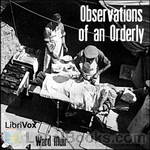 Observations of an Orderly
Observations of an Orderly
Ward Muir brings us into the heart of an English war hospital, describing scenes of cleanliness, triumph, order and sadness. Through the eyes of the orderly we get to see the processes that kept the wards running, and relive some tales from within the hospital walls. | |
By: Ignatius Loyola Donnelly (1831-1901) | |
|---|---|
 Atlantis: The Antediluvian World
Atlantis: The Antediluvian World
"Atlantis: The Antediluvian World is a book published during 1882 by Minnesota populist politician Ignatius L. Donnelly, who was born in Philadelphia, Pennsylvania during 1831. Donnelly considered Plato's account of Atlantis as largely factual and attempted to establish that all known ancient civilizations were descended from this supposed lost land. Many of its theories are the source of many modern-day concepts we have about Atlantis, like the civilization and technology beyond its time, the origins of all present races and civilizations, a civil war between good and evil, etc." | |
By: Samuel Merwin (1874-1936) | |
|---|---|
 The Road to Frontenac
The Road to Frontenac
| |
By: Oliver Lodge (1851-1940) | |
|---|---|
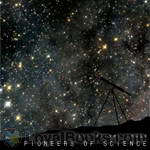 Pioneers of Science
Pioneers of Science
This book takes its origin in a course of lectures on the history and progress of Astronomy arranged for Sir Oliver Lodge in the year 1887. The first part of this book is devoted to the biographies and discoveries of well known astronomers like Copernicus, Brahe, Kepler, Galileo and Newton. In the second part, the biographies take a back seat, while scientific discoveries are discussed more extensively, like the discovery of Asteroids and Neptune, a treatise on the tides and others. | |
By: Harry Collingwood (1851-1922) | |
|---|---|
 The Cruise of the Thetis A Tale of the Cuban Insurrection
The Cruise of the Thetis A Tale of the Cuban Insurrection
| |
 The Log of a Privateersman
The Log of a Privateersman
| |
 Under the Meteor Flag Log of a Midshipman during the French Revolutionary War
Under the Meteor Flag Log of a Midshipman during the French Revolutionary War
| |
By: John Lord (1810-1894) | |
|---|---|
 Beacon Lights of History, Vol 1: The Old Pagan Civilizations
Beacon Lights of History, Vol 1: The Old Pagan Civilizations
The first of 14 volumes, this book discusses ancient civilization looking primarily at religion and philosophy. | |
 A Modern History, From the Time of Luther to the Fall of Napoleon For the Use of Schools and Colleges
A Modern History, From the Time of Luther to the Fall of Napoleon For the Use of Schools and Colleges
| |
 Ancient States and Empires
Ancient States and Empires
| |
 The Old Roman World, : the Grandeur and Failure of Its Civilization.
The Old Roman World, : the Grandeur and Failure of Its Civilization.
| |
By: Olive Schreiner (1855-1920) | |
|---|---|
 Trooper Peter Halket of Mashonaland
Trooper Peter Halket of Mashonaland
| |
By: John Henry Newman (1801-1890) | |
|---|---|
 Historical Sketches, Volume I (of 3) The Turks in Their Relation to Europe; Marcus Tullius Cicero; Apollonius of Tyana; Primitive Christianity
Historical Sketches, Volume I (of 3) The Turks in Their Relation to Europe; Marcus Tullius Cicero; Apollonius of Tyana; Primitive Christianity
| |
By: Alexander Kinglake | |
|---|---|
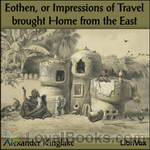 Eothen, or Impressions of Travel brought Home from the East
Eothen, or Impressions of Travel brought Home from the East
A classic of Victorian travel writing, Kinglake’s book describes his journey through the Ottoman empire to Cairo, and his residence there in time of plague. | |
By: Edward Stratemeyer (1862-1930) | |
|---|---|
 American Boy's Life of Theodore Roosevelt
American Boy's Life of Theodore Roosevelt
| |
 For the Liberty of Texas
For the Liberty of Texas
| |
 The Boy Land Boomer Or, Dick Arbuckle's Adventures in Oklahoma
The Boy Land Boomer Or, Dick Arbuckle's Adventures in Oklahoma
| |
By: John Maynard Keynes (1883-1946) | |
|---|---|
 Economic Consequences of the Peace
Economic Consequences of the Peace
The Economic Consequences of the Peace (1919) was a best seller throughout the world, published by John Maynard Keynes. Keynes attended the Versailles Conference as a delegate of the British Treasury and argued for a much more generous peace with Germany. The book was critical in establishing a general worldwide opinion that the Versailles Treaty was a brutal and unfair peace towards Germany. It helped to consolidate American public opinion against the treaty and involvement in the League of Nations... | |
By: H. A. Guerber (1859-1929) | |
|---|---|
 Story of the Greeks
Story of the Greeks
This book is a collection of stories and histories about the Ancient Greeks, including many of their famous myths! | |
By: A. D. F. (Alfred Dwight Foster) Hamlin (1855-1926) | |
|---|---|
 A Text-Book of the History of Architecture Seventh Edition, revised
A Text-Book of the History of Architecture Seventh Edition, revised
| |
By: Charles Johnson (fl. 1724-1736) | |
|---|---|
 Pirates
Pirates
| |
By: Hamilton Wright Mabie (1846-1916) | |
|---|---|
 Under the Trees and Elsewhere
Under the Trees and Elsewhere
| |
By: Lucy Fitch Perkins (1865-1937) | |
|---|---|
 The Puritan Twins
The Puritan Twins
| |
By: Friedrich Engels (1820-1895) | |
|---|---|
 Condition of the Working-Class in England in 1844
Condition of the Working-Class in England in 1844
This is Engels' first book (since considered a classic account of England's working class in the industrial age), which argues that workers paid a heavy price for the industrial revolution that swept the country. Engels wrote the piece while staying in Manchester from 1842 to 1844, based on th bohis observations and several contemporary reports conducted over the period. | |
By: Thomas Babington Macaulay Macaulay (1800-1859) | |
|---|---|
 Lays of Ancient Rome
Lays of Ancient Rome
| |
By: Edmund Burke (1729-1797) | |
|---|---|
 Burke's Speech on Conciliation with America
Burke's Speech on Conciliation with America
| |
 Selections from the Speeches and Writings of Edmund Burke
Selections from the Speeches and Writings of Edmund Burke
| |
 The Works of the Right Honourable Edmund Burke, Vol. 09 (of 12)
The Works of the Right Honourable Edmund Burke, Vol. 09 (of 12)
| |
By: Saint Thomas Aquinas (1225-1274) | |
|---|---|
 Summa Theologica - 06 Pars Prima Secundae, On the Last End, On Human Acts
Summa Theologica - 06 Pars Prima Secundae, On the Last End, On Human Acts
The Summa Theologica (or the Summa Theologiae or simply the Summa, written between 1265–1274) is the most famous work of Thomas Aquinas, even though it was never finished. It was intended as a manual for beginners and a compilation of all of the main theological teachings of that time. It summarizes the reasoning for almost all points of Christian theology in the West, which, before the Protestant Reformation, subsisted solely in the Roman Catholic Church. The Summa's topics follow a cycle: the existence of God, God's creation, Man, Man's purpose, Christ, the Sacraments, and back to God... | |
 Summa Theologica - 12 Pars Secunda Secundae, Treatise on Gratuitous Graces and the States of Life
Summa Theologica - 12 Pars Secunda Secundae, Treatise on Gratuitous Graces and the States of Life
The Summa Theologica (or the Summa Theologiae or simply the Summa, written 1265–1274) is the most famous work of Thomas Aquinas (c. 1225–1274) although it was never finished. It was intended as a manual for beginners and a compilation of all of the main theological teachings of that time. It summarizes the reasoning for almost all points of Christian theology in the West, which, before the Protestant Reformation, subsisted solely in the Roman Catholic Church. The Summa's topics follow a cycle: the existence of God, God's creation, Man, Man's purpose, Christ, the Sacraments, and back to God... | |
By: Samuel Pepys (1633-1703) | |
|---|---|
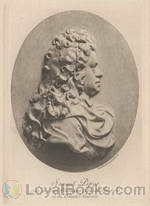 Diary of Samuel Pepys
Diary of Samuel Pepys
| |
By: Thomas Mayne Reid (1818-1883) | |
|---|---|
 Scalp Hunters
Scalp Hunters
"Unroll the world’s map, and look upon the great northern continent of America. Away to the wild west, away toward the setting sun, away beyond many a far meridian, let your eyes wander. Rest them where golden rivers rise among peaks that carry the eternal snow. Rest them there. You are looking upon a land whose features are un-furrowed by human hands, still bearing the marks of the Almighty mould, as upon the morning of creation; a region whose every object wears the impress of God’s image... | |
By: Estelle M. Hurll (1863-1924) | |
|---|---|
 Child-life in Art
Child-life in Art
The poetry of childhood is full of attractiveness to the artist, and many and varied are the forms in which he interprets it. The Christ-child has been his highest ideal. All that human imagination could conceive of innocence and purity and divine loveliness has been shown forth in the delineation of the Babe of Bethlehem. The influence of such art has made itself felt upon all child pictures. It matters not whether the subject be a prince or a street-waif; the true artist sees in him something which is lovable and winning, and transfers it to his canvas for our lasting pleasure. | |
By: George Morang (1866-1937) | |
|---|---|
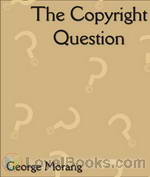 The Copyright Question
The Copyright Question
This is a letter to the Toronto Board of Trade regarding Canadian copyrights. Morang requested an appearance before the Toronto Board of Trade but was denied. This is his letter in response. He wished to make clear his position. | |
By: Arthur Thomas Quiller-Couch (1863-1944) | |
|---|---|
 Adventures in Criticism
Adventures in Criticism
| |
 On The Art of Reading
On The Art of Reading
| |
 The Blue Pavilions
The Blue Pavilions
| |
 Fort Amity
Fort Amity
| |
 From a Cornish Window A New Edition
From a Cornish Window A New Edition
| |
By: Montague R. James (1862-1936) | |
|---|---|
 The Wanderings and Homes of Manuscripts Helps for Students of History, No. 17.
The Wanderings and Homes of Manuscripts Helps for Students of History, No. 17.
| |
By: George Wharton Edwards (1859-1950) | |
|---|---|
 Vanished towers and chimes of Flanders
Vanished towers and chimes of Flanders
| |
By: Adam Mickiewicz (1798-1855) | |
|---|---|
 My First Battle A Sergeant's Story
My First Battle A Sergeant's Story
| |
By: Cornelius Tacitus (56-120) | |
|---|---|
 Tacitus: The Histories, Volumes I and II
Tacitus: The Histories, Volumes I and II
| |
 The Reign of Tiberius, Out of the First Six Annals of Tacitus; With His Account of Germany, and Life of Agricola
The Reign of Tiberius, Out of the First Six Annals of Tacitus; With His Account of Germany, and Life of Agricola
| |
By: James E. Seaver (1787-1827) | |
|---|---|
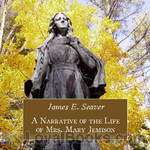 A Narrative of the Life of Mrs. Mary Jemison
A Narrative of the Life of Mrs. Mary Jemison
Mrs. Mary Jemison was taken by the Indians, in the year 1755, when only about twelve years of age, and has continued to reside amongst them to the present time. Containing an account of the murder of her father and his family; her sufferings; her marriage to two Indians; her troubles with her children; barbarities of the Indians in the French and Revolutionary Wars; the life of her last husband, and many historical facts never before published. | |
By: Francis Fisher Browne (1843-1913) | |
|---|---|
 Every-day Life of Abraham Lincoln
Every-day Life of Abraham Lincoln
This detailed biography covers the places in Lincoln's life: Indiana, Illinois, Washington. It also traces his various roles as storekeeper, serviceman, state legislator, lawyer, politician, Republican Party leader, and of course President. Along the way we learn about his days of hardship as a beginning lawyer, his love for Anne Rutledge, such myths as "Honest Abe," and his deep concerns over the issue of slavery. The author uses Lincoln's correspondence with others to show his personality traits and opinions about topics of his world. | |
By: Julius Caesar (100 BC - 44 BC) | |
|---|---|
 "De Bello Gallico" and Other Commentaries
"De Bello Gallico" and Other Commentaries
| |
By: George Rawlinson (1812-1902) | |
|---|---|
 History of Phoenicia
History of Phoenicia
| |
 The Seven Great Monarchies Of The Ancient Eastern World
The Seven Great Monarchies Of The Ancient Eastern World
| |
By: Annie F. Johnston (1863-1931) | |
|---|---|
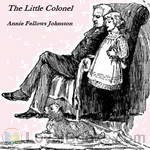 The Little Colonel
The Little Colonel
The scene of this story is laid in Kentucky. Its heroine is a small girl, who is known as the Little Colonel, on account of her fancied resemblance to an old-school Southern gentleman, whose fine estate and old family are famous in the region. (Introduction taken from original book.) | |
By: Aristophanes (446BC - 385BC) | |
|---|---|
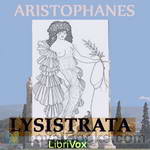 Lysistrata
Lysistrata
Lysistrata read by the Classics Drama Company at DePaul. The Classics Drama Company at DePaul is a new gathering of Thespians and Classicists dedicated to performing and understanding ancient literature. If you live in Chicago and attend DePaul University, we welcome new additions to our group. Contact Dr. Kirk Shellko (kshellko@depaul.edu), if interested.First performed in classical Athens c. 411 B.C.E., Aristophanes’ Lysistrata is the original battle of the sexes. One woman, Lysistrata, brings together the women of all Greece, exhorting them to withhold sexual contact from all men in order that they negotiate a treaty... | |
By: William E. B. Du Bois (1868-1963) | |
|---|---|
 The Negro
The Negro
| |
By: Watkin Tench (1758-1833) | |
|---|---|
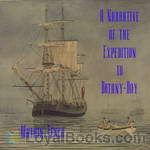 A Narrative of the Expedition to Botany-Bay
A Narrative of the Expedition to Botany-Bay
Watkin Tench was an officer of the British Marines in the First Fleet to settle NSW. This is an interesting and entertaining account of his experiences during that time (Introduction by Tabithat) | |
 A Complete Account of the Settlement at Port Jackson
A Complete Account of the Settlement at Port Jackson
| |
By: Dudley Landon Vaill (1873-?) | |
|---|---|
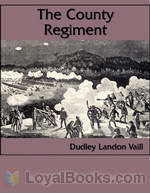 The County Regiment
The County Regiment
A sketch of the second regiment of Connecticut volunteer heavy artillery, originally the Nineteenth Volunteer Infantry, in the Civil War. | |